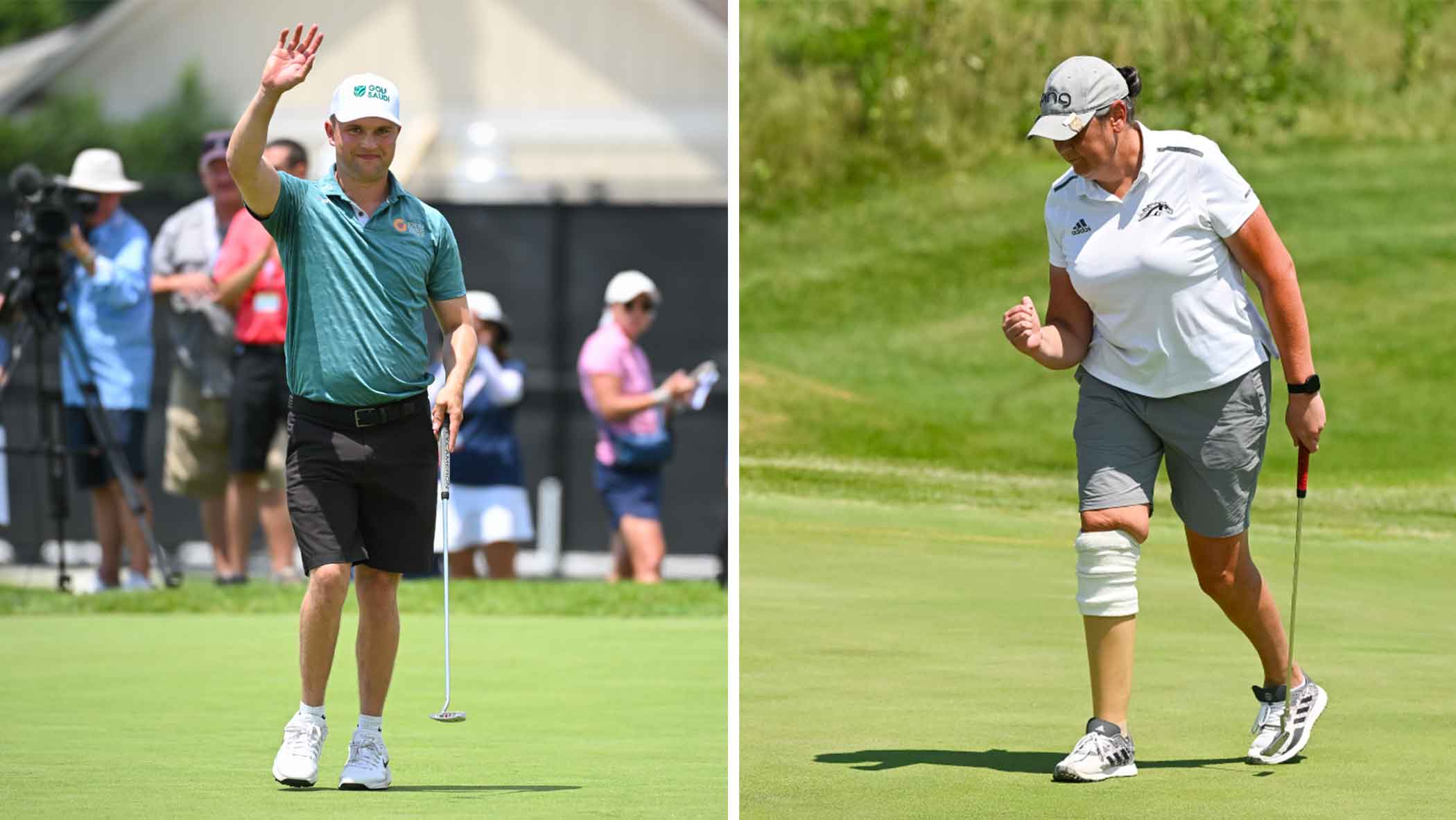From a young age, my brother, Matt Snowdon, excelled at golf. Hoping to share the game he loved with his son, our father gave Matt a small set of clubs in a red Snoopy bag for his fourth birthday. Nobody knew it at the time, but those Snoopy clubs marked the start of an extraordinary journey for Matt, one that is still unfolding with every single swing he takes.
“The first day we went down to the driving range, he was probably five,” my dad, Andrew, recalls. “I teed up a ball for him and gave him an iron. I really wasn’t expecting that much — maybe he makes contact or, best case, he tops one straight. But on the first swing the ball got up in the air, straight as a string. That happened over and over. At one point, people on the range started coming over to watch and were just shaking their heads.”
A naturally talented left-handed golfer at five years old is a rarity — even more rare is one with multiple disabilities.
Matt, who’s 25 now, has been diagnosed with Intellectual and Developmental Disabilities (IDD) and Autism Spectrum Disorder (ASD). These affect his speech and cognition, yet their invisible nature makes it impossible to know about his disabilities by just looking at him. Matt can walk, talk and live semi-independently, but he struggles to construct sentences, can’t drive or understand money, battles memory issues and will always require some level of support.

At U.S. Adaptive Open, records fall (and Tiger Woods gets some company)
By:
Josh Sens
“But in the world of golf, where he can really focus on just him and the ball or just him on the course, he has learned to manage the frustrations really well,” says Lance Clawson, Matt’s longtime psychiatrist, who notes how uncommon it is for someone with Matt’s challenges to excel in sports. “You don’t see this very often, and you really don’t see it in games like golf, where it takes so much focus and so much capacity to maintain control.”
With the help of GOLF Top 100 Teacher Bernie Najar, Matt has boasted a handicap index as impressive as 4.7, putting him in a category with less than 9 percent of male golfers in the United States. According to Jim Schmutz, the president and CEO of Special Olympics Maryland, Matt is, in the realm of disabled golfing, “probably a top 10 player in the world.”
The challenge for Matt is finding competitive playing opportunities. “It was too easy for me,” Matt says about his recent experience in the Special Olympics, where everyone plays from the forward tees. “But I usually play from the tips, [so] it’s not the way I normally perform from those kinds of easy levels. I just like playing it the harder way.”
That’s why Matt hopes to compete in the U.S. Adaptive Open. The USGA tournament provides a competitive experience for golfers whose disabilities include, among other things, visual, intellectual and coordination impairments.
When Matt is not working intensely with his team of doctors and therapists to improve his communication and emotional regulation skills, his is out on the course, perfecting his game. For him, every day is a challenge as he forges his way in a world not designed with him in mind. But it’s his unwavering drive — on and off the course — that leaves a lasting impression on anyone fortunate enough to cross paths with him.
Abby Snowdon is an aspiring journalist who will enter her junior year at the University of Virginia this fall.







